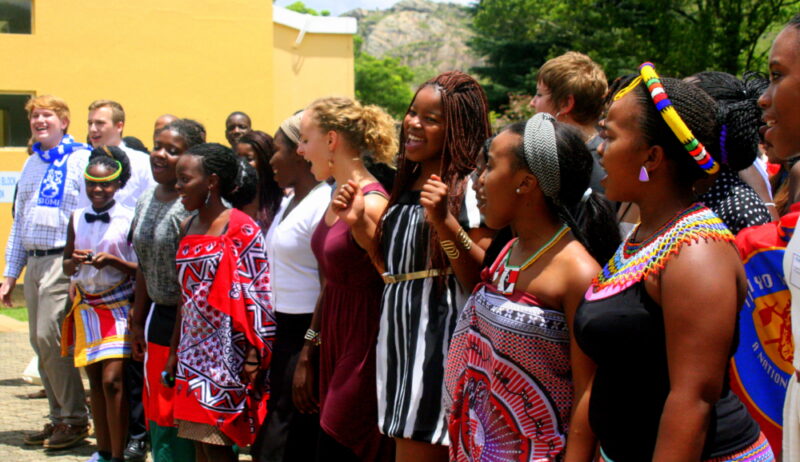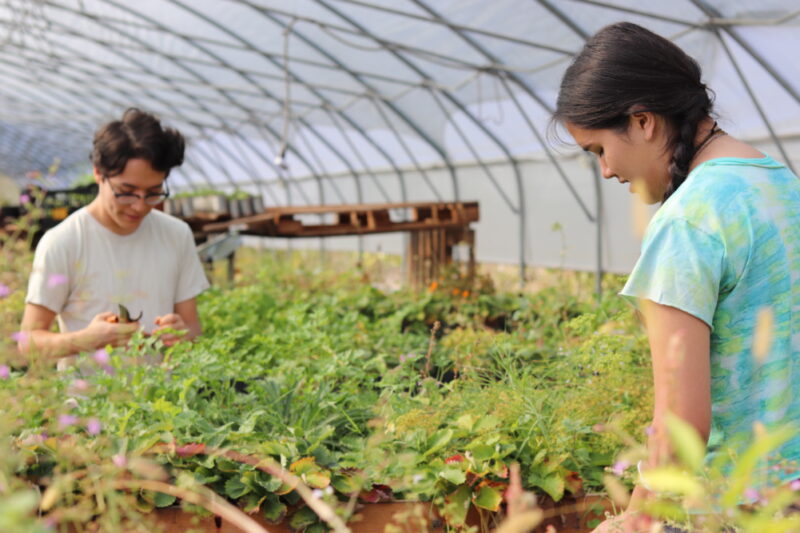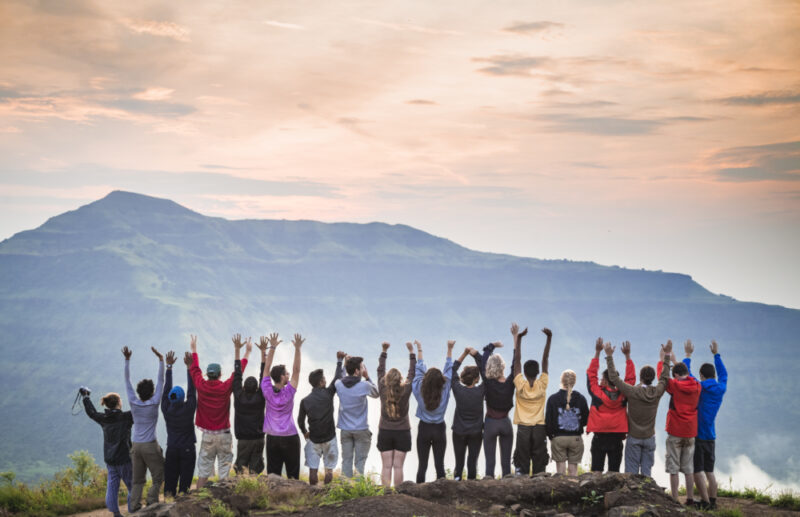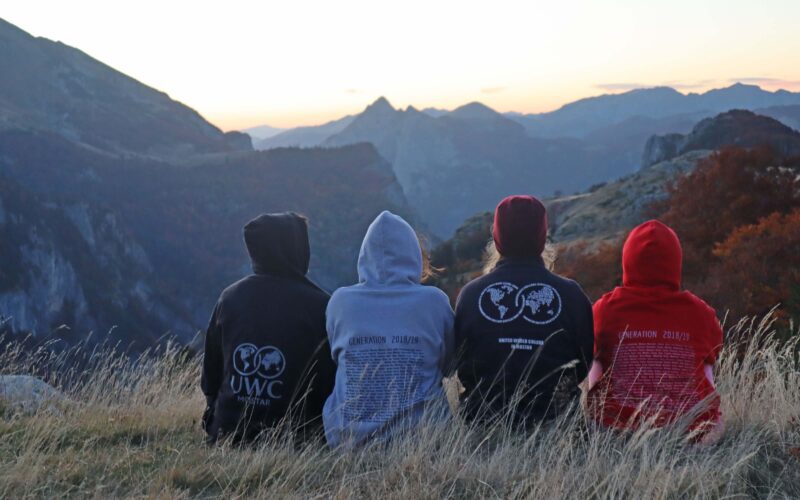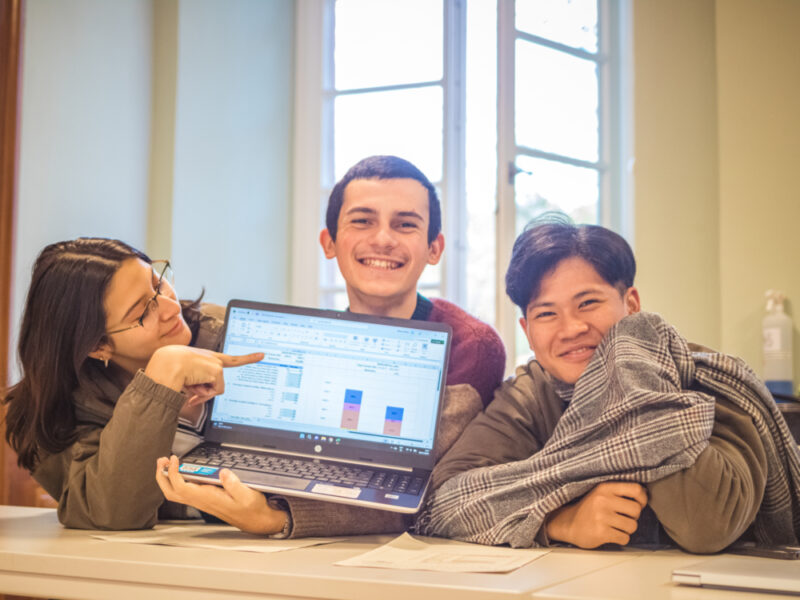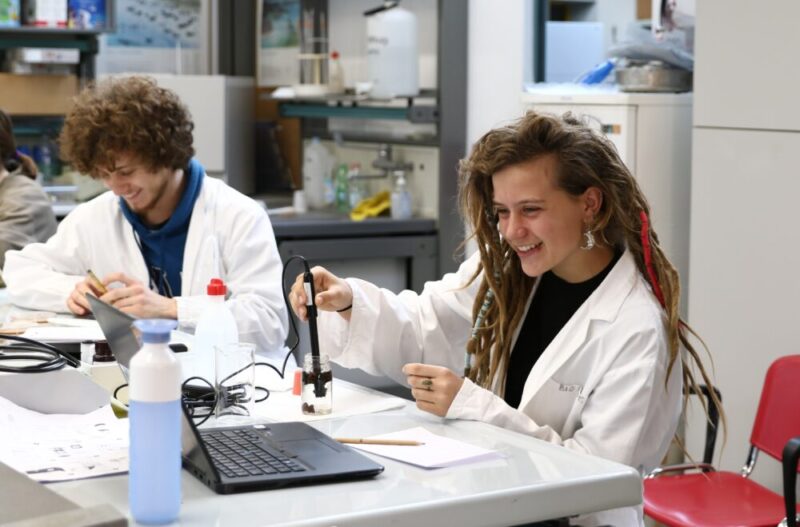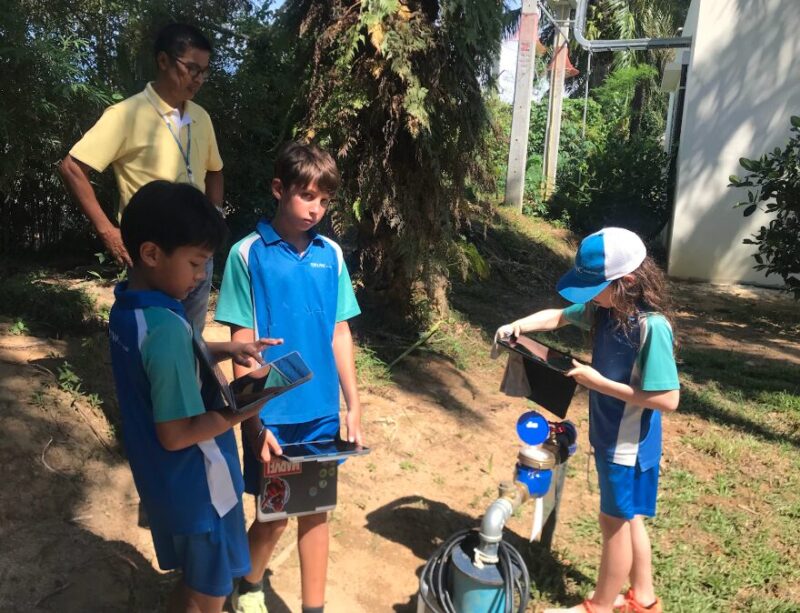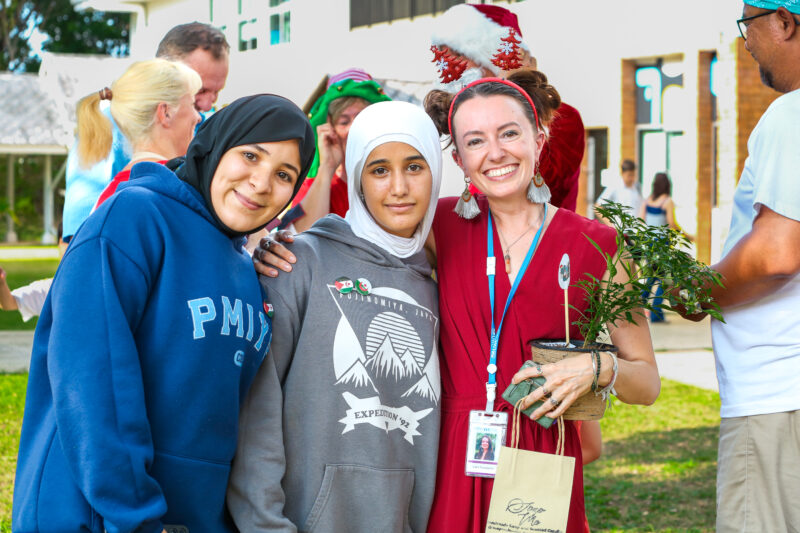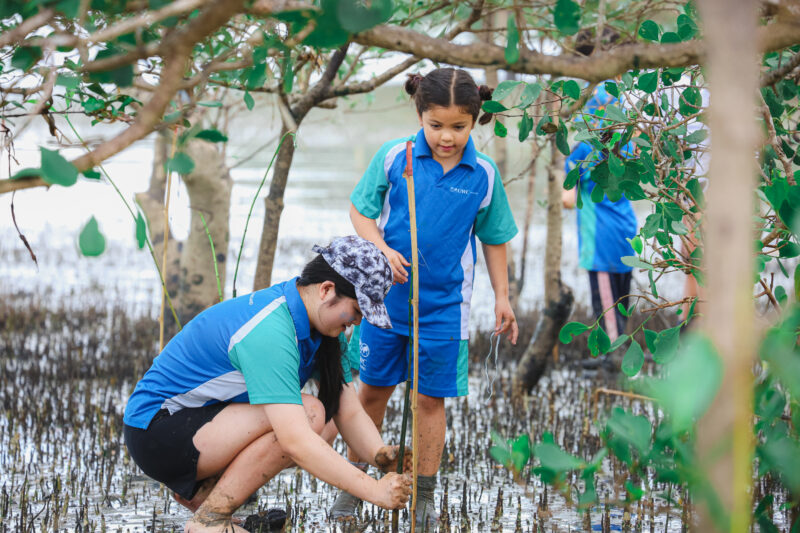UWC Thailand
Welcome to UWC Thailand’s Sustainability Journey
UWC Thailand was founded in 2016, with an idyllic location that promotes a passion for nature within our community and feasible projects to support sustainability in Phuket. We are committed to addressing the high level of tourism and the plastic waste problem in Southeast Asia.
Our campus is situated in the foothills of Khao Phra Thaew National Park, away from the typical tourist trails, providing ample green spaces for our K-12 students to enjoy. We have native shade trees, tropical fruit trees, and three well-maintained garden areas, encouraging hands-on learning about food sources and cultivating a strong sense of environmental responsibility.
Some of our sustainability successes and initiatives include:
- Plastic Free Phuket: this student-led initiative collaborates with businesses and the Phuket Governor to shift the island towards a more sustainable future, reducing single-use plastic reliance. Students, staff and community members conduct weekly beach cleanups and work with local groups to sort, recycle, and reuse what we collect from the beach.
- Local service providers: we work closely with local service providers on our sustainability efforts, where students volunteer on weekends. These include the local Gibbons Sanctuary, the national park, local schools for migrant children, street dog shelters, and elephant welfare groups.
- Plate and Kitchen Waste: The school canteen’s food scraps and kitchen waste, previously incinerated, are now collected by a local farmer who uses them to support animal and fowl raising, while the surplus food is repackaged and donated to Scholars of Sustenance.
- Green Garden Waste: Implementing an on-site composting system for green garden waste, including leaf clippings and hedge cuttings, has led to a decrease of around 150 bags per month in waste transported to Phuket Town for incineration.
- Primary Years Programme Garden: A garden space constructed by Primary Years Programme students has been so beneficial for Early and Primary Years Programme students that the school intends to extend it into a larger community garden that includes student-designed composting and water catchment systems.
- Housekeeper and Garden Workshop: Teachers organised a workshop for the gardeners and housekeeping staff to inform them about ongoing and upcoming student projects, emphasizing sustainable and efficient collaboration.
- Mangrove Nursery and Revegetation: Our mangrove nursery, designed and built on-campus, aids revegetation projects along the island’s east coast in partnership with the Department of Marine and Coastal Resources. Students are involved in collecting mangrove pods, potting them in our school nursery, and ultimately transplanting young trees to previously cleared mangrove habitats used for shrimp farming, firewood, charcoal production, and construction. Over the last eight years, we have successfully planted around 30,000 trees with a success rate of 90%.
Our sustainability projects have made a significant impact on our community and environment. Through our efforts, we have reduced waste generated by our school, contributed to reforestation projects, and increased awareness about sustainable practices among our students and the wider community.
Led by our Sustainability Steering Group, composed of a cross-section of our community members, from School Board representatives to students, sustainability initiatives at UWC Thailand are an ever-increasing priority and strategic focus for us as a school.
Our vision for the future is to continue leading by example and inspiring others to adopt sustainable practices. We aim to be a model for other schools in the region, promoting sustainable practices and engaging in meaningful projects that contribute to the long-term health of our planet. We will continue to work closely with our community partners and local authorities to achieve our goals and create a brighter, more sustainable future for all. Join us on our sustainability journey as we strive to impact the environment and our community positively.

